Britain eases lockdown as Asia outbreaks fuel concern
The pandemic has claimed more than 3.3 million lives worldwide, with one of the worst outbreaks in India.
Britons hugged their loved ones and streamed into pubs, gyms and other indoor venues on Monday as the country eased pandemic restrictions, but Asia faced more misery with new variants and a cyclone disrupting the fight against the Covid-19 wave ravaging India.
As the United States and Britain move away from harsh restrictions thanks to rapid immunisation campaigns, new strains have forced several countries in Asia to shut schools and impose travel bans, highlighting the persistent global threat posed by the pandemic.
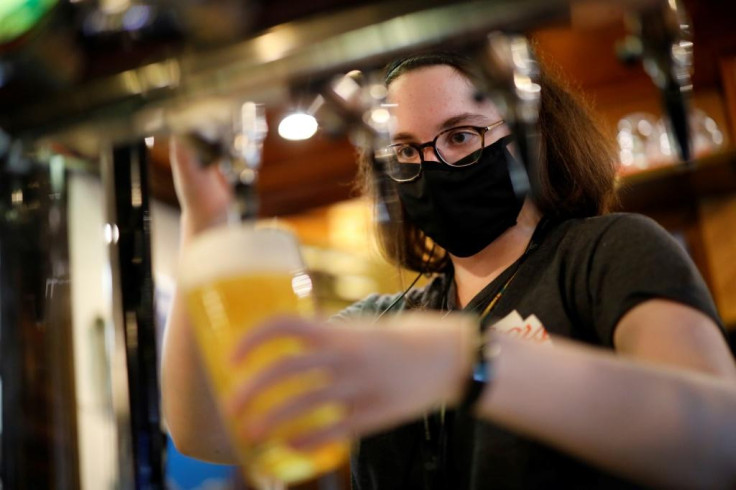
With known global infections now past 163 million and the rise of new variants complicating the fight, governments are ramping up vaccine campaigns, with Germany the latest country to make jabs available to all adults from next month.
Elsewhere, governments pushed ahead with a long-awaited easing of restrictions.
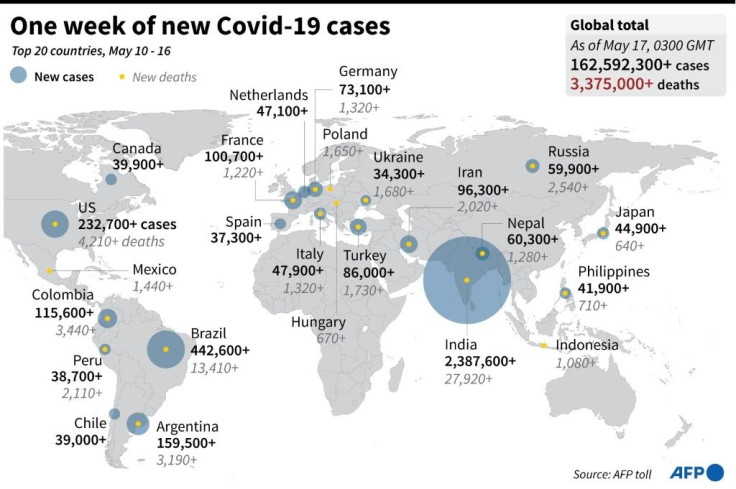
"I actually feel a wee bit emotional saying this... you can hug your loved ones again," Scotland's First Minister Nicola Sturgeon said.
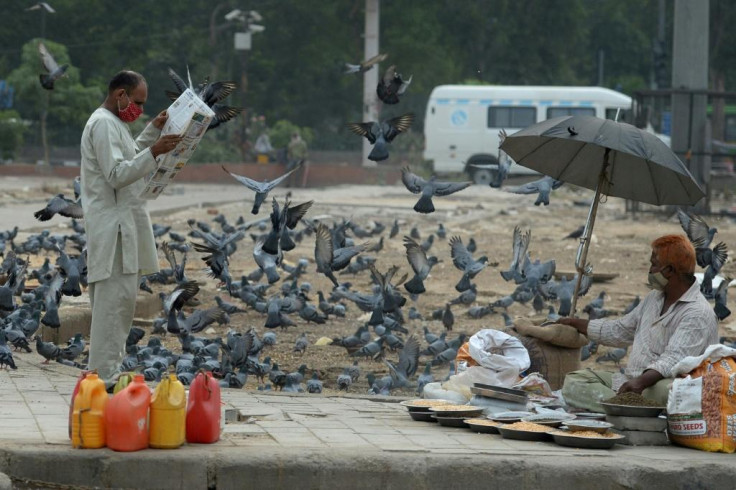
Across England, Wales and most of Scotland, people could once again grab a drink or dine inside pubs, restaurants and cafes on Monday.
Cinemas, museums and sports venues also opened their doors for the first time in months.
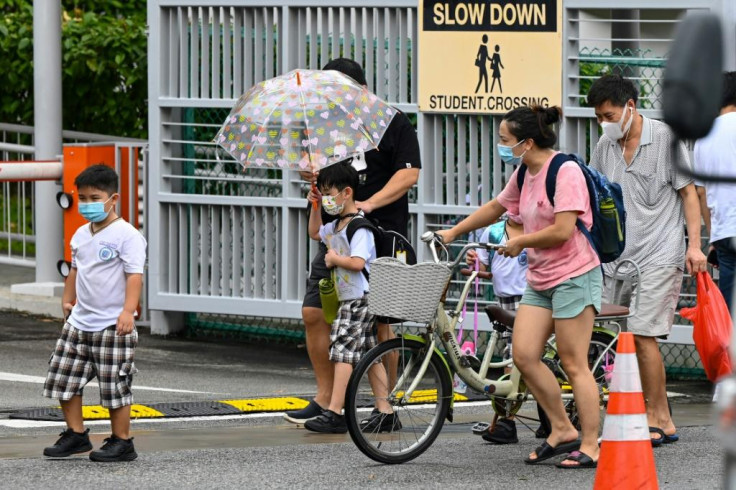
"What's nice is to see people we don't know. Seeing people happy, you can see people smiling and enjoying themselves," said Yara Mahran, 24, before heading into a London cinema.
People were able to once again visit each other at home, while others headed to Portugal, one of 12 countries on the UK's "green list" where the British are now allowed to travel without needing to self-isolate afterwards.
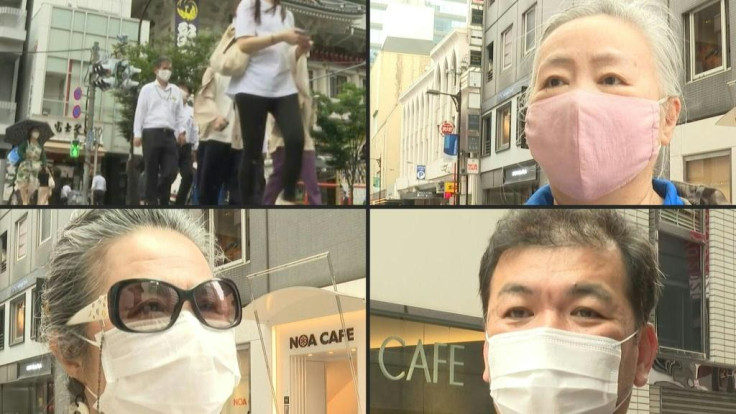
"It's nice to get away and be back here," said Barry Thompson, a 63-year-old retired policeman from Manchester who landed in the southern town of Faro with his wife and son.
"We're very excited."
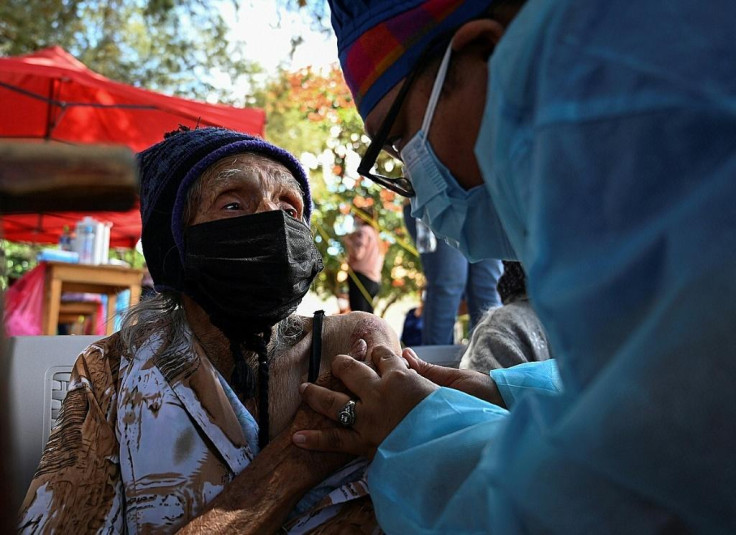
Over in France meanwhile, Disneyland Paris announced it would reopen on June 17.
But authorities have urged caution, warning that with new variants spreading, restrictions could be reintroduced.
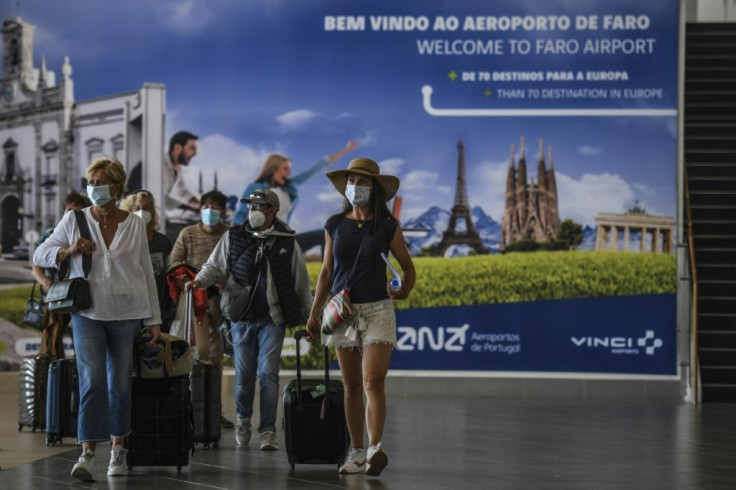
The pandemic has claimed more than 3.3 million lives worldwide, with one of the worst outbreaks in India, where at least 4,000 people are dying from Covid-19 every day.
India was already struggling with limited medical infrastructure and scarce vaccine supplies when a major cyclone in the Arabian Sea, packing ferocious winds, bore down on the South Asian nation.
Gujarat state moved all Covid-19 patients from hospitals within five kilometres (three miles) off the coast where the storm was expected to hit.
Authorities there were also scrambling to ensure there would be no power cuts at designated Covid-19 hospitals and oxygen plants in the districts under threat from the storm.
Nearly 600 patients in Mumbai, India's financial capital, were also moved to "safer locations".
The variant behind the explosive outbreak in India has spread to at least 44 countries, according to the World Health Organization.
They include Singapore, where a growing number of cases has prompted the government to tighten restrictions, including closing schools.
"A lot of people have taken for granted the past few months of peace and stability, but this is a wake-up call," said Anthony Chang, a stall owner in the city-state.
Taiwan, which emerged relatively unscathed from the pandemic last year, has suspended classes in schools from Tuesday in Taipei and adjacent New Taipei City to battle a surge in infections.
The island also banned all foreigners, except residents, from entry or transit for a month.
As UNICEF, the UN's children's organisation, pressed the G7 and EU nations to donate vaccines to poorer countries, President Joe Biden said Monday that the United States would ship out another 20 million doses to other countries over the next six weeks.
That means the US aims to have exported 80 milion doses by the end of June.
In some hard-hit countries, vaccine drives offer some hope.
In South Africa, the continent's worst-hit country on the cusp of a third wave, authorities launched a large-scale campaign aiming to immunise five million people over the age of 60 by the end of June.
And Europe's largest economy Germany said it would make vaccines available to all adults in three weeks.
Organisers have insisted that they will go ahead, but the opposition was brought into focus Monday when a new poll showed 80 percent of Japanese people oppose hosting the Games this year.
Copyright AFP. All rights reserved.
This article is copyrighted by International Business Times, the business news leader





















